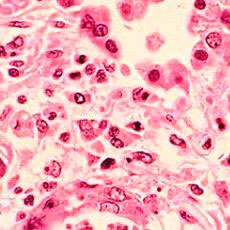A Clallam County woman is said to be the first to die from the measles in the U.S. since 2003, reports the Washington State Department of Health.
Following an outbreak in February where five people from Clallam County were diagnosed with the measles and 11 statewide, health officials report the latest case was found following a recent autopsy revealing an undetected measles infection.
The woman died from pneumonia due to measles in the spring and was most likely exposed to measles at a local medical facility during the outbreak, health officials said.
Dr. Jeanette Stehr-Green, interim Clallam County health officer, said they were able to link the local cases through either family members, co-workers, and/or having been in the same medical center as a case that was infectious at that time.
She said they are still unsure how Clallam’s first case, a man in his 50s, was infected.
The last active case of measles in Washington this year was reported in late April. Autopsy results from the woman were released on June 30 to health officials.
Donn Moyer, spokesman for the state Department of Health, said there is no known current danger of infection since the period of exposure (three weeks) is over with no new cases linked to this woman.
The woman was present at the same time as a person who later developed a rash and was contagious for measles and had several other health conditions, health officials said.
“She had underlying illnesses, making her immunocompromised because of either the illnesses that were autoimmune or she was taking medications that might have prevented her body from mounting a defense from measles and other illnesses,” Stehr-Green said.
“She was vaccinated against measles but the critical thing is that even those who are immunocompromised and so ill aren’t able to defend themselves against the measles virus.”
The woman was identified as exposed and processed like others by doctors, but she never had a clear outbreak, Stehr-Green said.
“She didn’t have some of the common symptoms of measles such as a rash, so the infection wasn’t discovered until after her death,” Stehr-Green said.
The woman’s family asked health officials withhold her identity but they agreed to lab testing, which led to the discovery of measles.
“We give a lot of credit to the University of Washington where she received her care and passed away because they feel it’s important (to do an autopsy) and it often provides family closure,” Stehr-Green said.
“Her death has rocked them (her family). They are never going to be the same. Hopefully the message gets across that it’s important to get vaccinated. You will protect yourself and as equally important your loved ones and neighbors who are vulnerable or can’t mount a good defense against infection. The right thing to do for the community is get vaccinated.”
Vaccinations
People with compromised immune systems often cannot be vaccinated against measles and, even when vaccinated, they may not have a good immune response when exposed to the disease and may be especially vulnerable to disease outbreaks, health officials said.
They recommend everyone eligible for the measles, mumps and rubella (MMR) vaccine get vaccinated so they can help protect themselves, their families and the vulnerable people in their community.
Moyer said to check with your health care provider to see if you are up to date.
Measles is highly contagious even before the rash starts and is easily spread when an infected person breathes, coughs or sneezes, health officials said.
If you’re not protected, you can get measles just by walking into a room where someone with the disease has been in the past couple of hours.
Children should be vaccinated with two doses of MMR vaccine with the first dose between 12 and 15 months and the second at 4 to 6 years, state officials said. Adults born after 1956 should have at least one measles vaccination; some people need two.
The state Department of Health immunization program has online information about measles and measles vaccine at www.doh.wa.gov.
More information about measles nationwide is available on the Centers for Disease Control and Prevention website at www.cdc.gov/measles.



